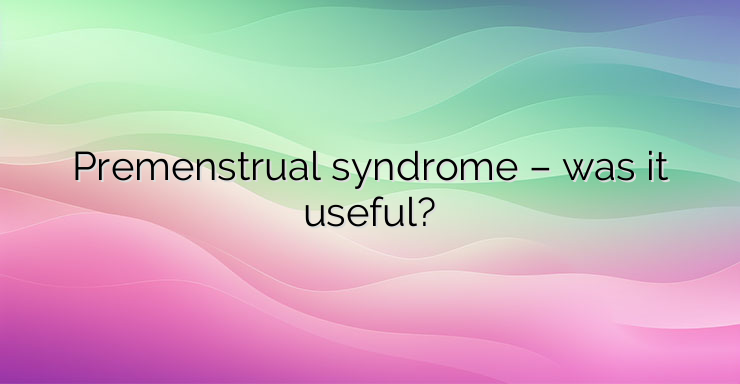According to Australian biologist Michael Gillins, evolution has preserved PMS in women as necessary for natural selection. The unpleasant condition of the woman, which is characterized by irritability and nervousness, had a significant benefit for her. This gave her more chances to break up with a possibly incapable partner. Premenstrual syndrome is embedded in a woman’s biology and is related to the course of the menstrual cycle. It appears, in general, from the moment when the body “finds” that there is no pregnancy, approximately 5 days after ovulation and the reverse development of the corpus luteum. Four fifths of women of reproductive age suffer from it, and in this period their behavior is distinguished by its aggressive nature and at the same time depressed mood. In premenstrual syndrome, in addition to a change in the hormonal background, a certain hormonal imbalance is also detected, as well as vegetative-vascular changes. There is also a psycho-emotional disorder caused by these conditions. The woman is anxious, tense, changes her mood sharply, has a headache, etc. The author of the theory suggests that for the appearance of all these signs in such a large proportion of the female population, depending on the menstrual cycle, there is some evolutionary meaning that was maintained for its benefit. In general, in the past, women of reproductive age menstruated for a much smaller part of their lives because, if they were not pregnant, they were breastfeeding. Anthropologists have proven that in our nomadic past, a woman menstruated only twice a year and no more than 100 times in the time leading up to her menopause. Unlike today, in the past, when having offspring was the main means of survival, in it was logical for the woman to manifest biologically embedded traits that would “drive out” her untrustworthy partner. The repulsive physical and mental state of the woman is a kind of natural reaction to the missed chance and the inability to conceive. According to Gillins, premenstrual syndrome in women contributed to the increase of human reproduction and survival, being a kind of selection method for healthy and fertile individuals of the opposite sex. NEWS_MORE_BOX As arguments supporting his assumptions, the scientist points to the large share of hereditary transmission of premenstrual syndrome in women and the discovery of genes related to it. Researchers have found a link between aggression and hostility towards one’s partner before menstruation in women with some specific genes. In the time before menstruation, however, a woman’s sexual activity also increases, which does not make sense with her behavior towards her current partner. This, in turn, is explained by the need to find a new partner, embedded in the genes of the fairer sex. From a modern point of view, premenstrual syndrome loses its importance in terms of natural selection.Therefore, it should be stopped considering it as a pathological condition. The approach to its treatment must be changed from the beginning, accepting it as a natural phenomenon of evolution that we no longer need, and in this sense it would be much more appropriate to act in the direction of stopping menstruation by medication rather than treating the symptoms of premenstrual syndrome with medications such as antidepressants, argues Gillins, quoted in the journal Evolutionary Applications.


Leave a Reply